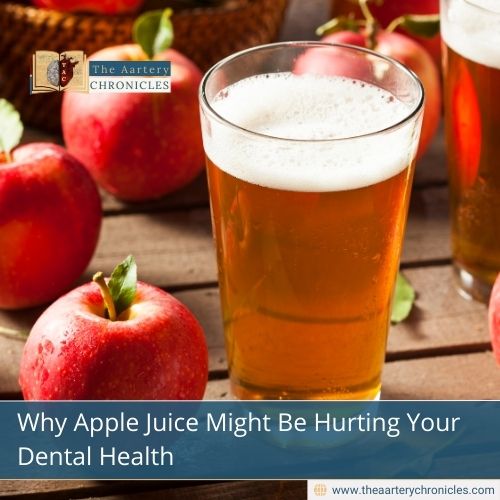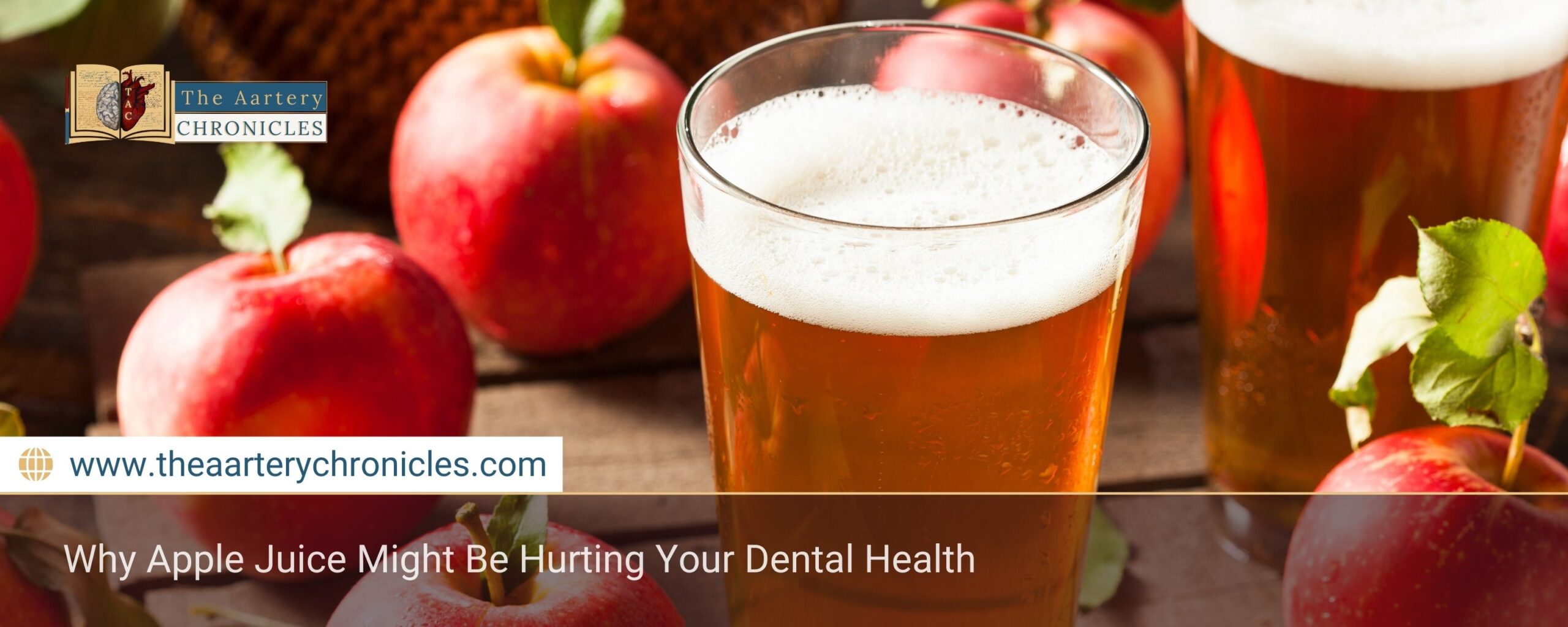

Why Apple Juice Might Be Hurting Your Dental Health
Apple juice is refreshing, naturally sweet, and often seen as a healthy choice. But when it comes to apple juice and teeth, the story is more complex. A new study shows that while apple juice is safe in small amounts, its acidity and sugar can temporarily weaken the protective power of saliva. If consumed too often, it may lead to enamel erosion, cavities, and a decline in oral immune defenses.
Why Saliva Matters for Oral Health
Saliva isn’t just spit; it’s one of the body’s strongest natural defenses for the mouth. It washes away food particles, reduces friction, and repairs the earliest signs of enamel wear. Key proteins in saliva, including mucins, immunoglobulins, cystatins, and carbonic anhydrase, form a protective film that shields teeth from acids and harmful bacteria.
In a study published in PLOS One, researchers tested how apple juice affects saliva by having participants rinse with juice and then with tap water.
The results were clear:
- Short-term effects: Apple juice briefly reduced saliva’s protective functions, but recovery happened within 10 minutes.
- Protein changes: Some protective proteins dropped slightly, but mucins, the main lubricants, stayed steady.
- Unexpected finding: Tap water caused more disruption than apple juice at first, probably because minerals in water interfered with saliva proteins.
This means the mouth can bounce back quickly after occasional juice consumption. Problems arise mainly with repeated or prolonged exposure.
Apple Juice and Teeth: The Main Concerns
While sipping apple juice every now and then is safe, frequent intake can put oral health at risk. The study highlights three key concerns:
1. Enamel Erosion: Apple juice is acidic, and repeated contact can slowly wear down tooth enamel. Once enamel thins, teeth become more sensitive, prone to discolouration, and vulnerable to decay.
2. Higher Risk of Cavities: Natural sugars in apple juice feed oral bacteria. These bacteria produce acids that attack enamel and create plaque. Sipping juice throughout the day gives bacteria more fuel, raising the chance of cavities, gum inflammation, and bad breath.
3. Weakened Oral Immunity: Apple juice can temporarily reduce the levels of saliva proteins that play a role in supporting oral immunity. While this effect is short-lived, repeated exposure may disrupt the mouth’s microbiome, leaving gums and teeth more exposed to infection.
Conclusion
When it comes to apple juice and teeth, moderation is the golden rule. A glass every so often won’t cause lasting damage, thanks to saliva’s natural repair system. But sipping apple juice frequently throughout the day can slowly wear down enamel, increase cavity risk, and affect oral immunity. Smart drinking habits and good oral hygiene are the best ways to enjoy apple juice without harming your smile.
Source: Inputs from various media Sources
I’m a pharmacist with a strong background in health sciences. I hold a BSc from Delhi University and a pharmacy degree from PDM University. I write articles and daily health news while interviewing doctors to bring you the latest insights. In my free time, you’ll find me at the gym or lost in a sci-fi novel.
- Priya Bairagi
- Health News and Updates,People Forum
- 6 September 2025
- 20:00








